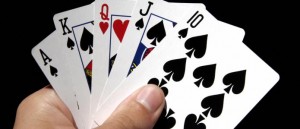 A while ago, I wrote about the Pareto Principle, which is an observation that, more or less regardless of economic structure, most of the wealth in most nations ends up in the hands of a few. Even more specifically, about 80% of the wealth is owned by 20% of the people. Further, there are some simple computer simulations that can reproduce this distribution of wealth with some very simple rules — if you can only exchange wealth by either buying things from one another or investing in a random “stock market”, where all people have the same chance of returns, this 80/20 distribution comes out naturally.
A while ago, I wrote about the Pareto Principle, which is an observation that, more or less regardless of economic structure, most of the wealth in most nations ends up in the hands of a few. Even more specifically, about 80% of the wealth is owned by 20% of the people. Further, there are some simple computer simulations that can reproduce this distribution of wealth with some very simple rules — if you can only exchange wealth by either buying things from one another or investing in a random “stock market”, where all people have the same chance of returns, this 80/20 distribution comes out naturally.
So, what does this have to do with poker? I spent way too much time playing poker on my Blackberry against the computer agents and discovered a strategy that leads to wins relatively quickly. If you take some chances at the beginning, going all in, most of the time you will lose (probably about 4/5 times if there are a total of 5 players). But, if you win, you quickly build up a chip-count that is higher than the new players. You now have the ability to take risks that involve more money, but are overall smaller risks for you. If you have $10K, you can bet $1K without much worry, but for a player that only has $1K-$2K, that is a huge portion of their funds, and they will be much more risk adverse as if they end up on the wrong side of the cards, they will lose almost everything. So, by betting big, you can keep essentially force them to fold most of the time. Of course, once in a while they will have a hand that is worth betting on, but so will you and you can outlast them.
The point is, by starting with a bigger pot than the other players, you can take bigger absolute, but smaller relative, risks that are large relative risks for them, forcing them to fold. This concentrates more and more chips — wealth — in your hands relatively quickly. It doesn’t take any skill, just some extra cash.
In real poker, of course, the dynamics of real players changes things. But, this simple computer-controlled poker world seems to mimic the Pareto Principle and the computer simulations remarkably well, showing that with some initial luck that gets you ahead of the curve, you can quickly gain wealth without any more skills or “work” than the others. The rich get richer, through no special effort of their own. Something to think about.